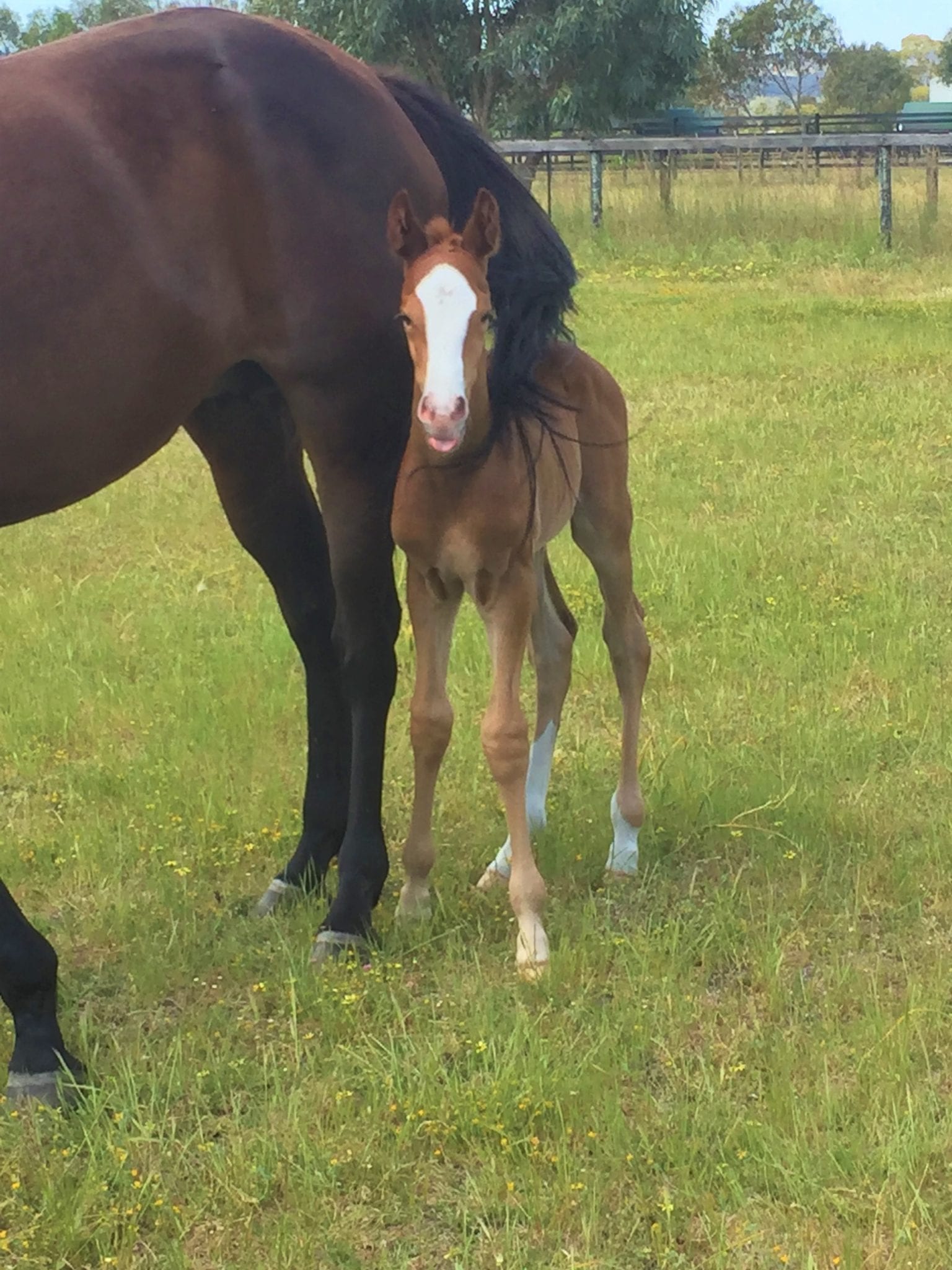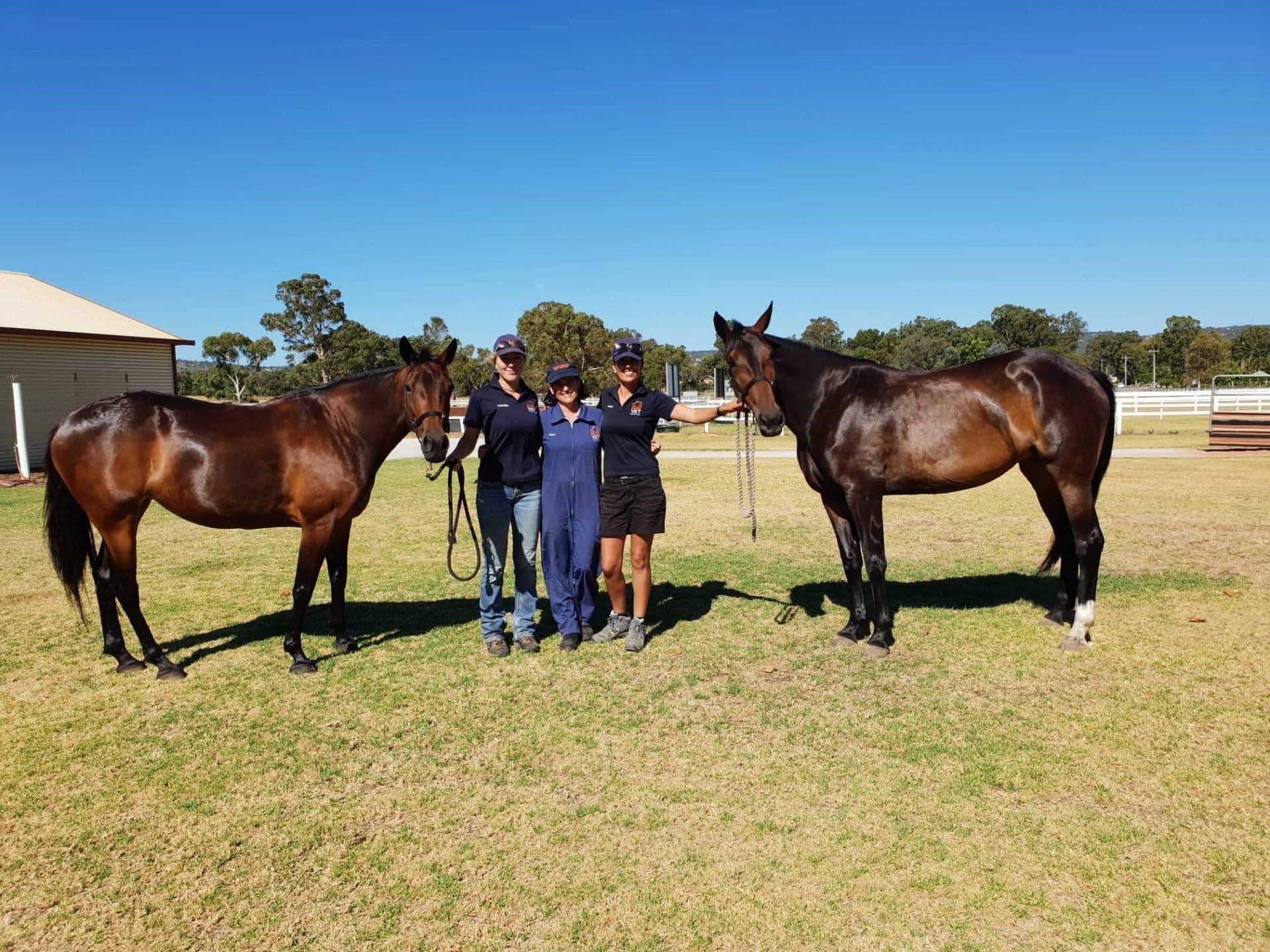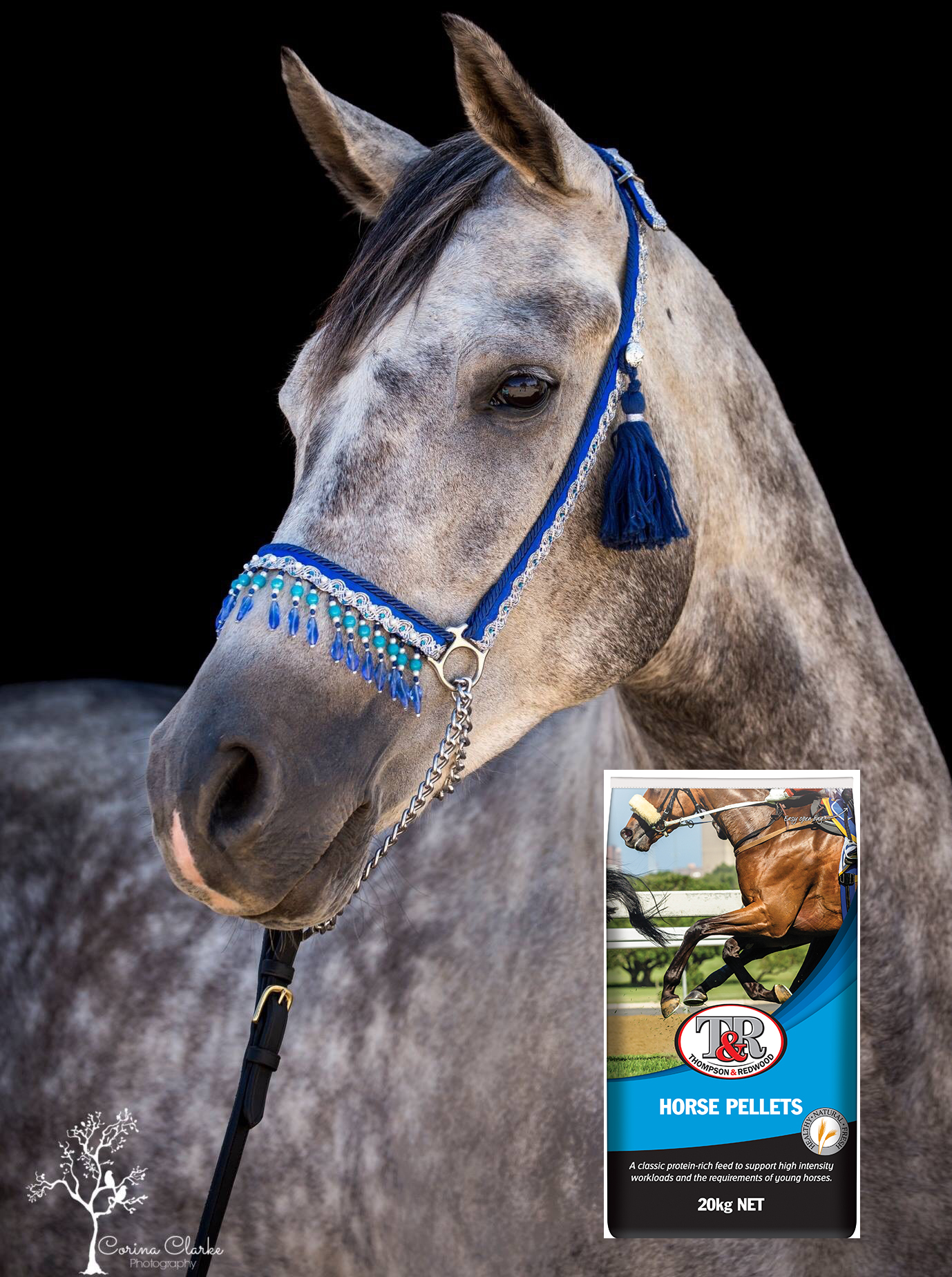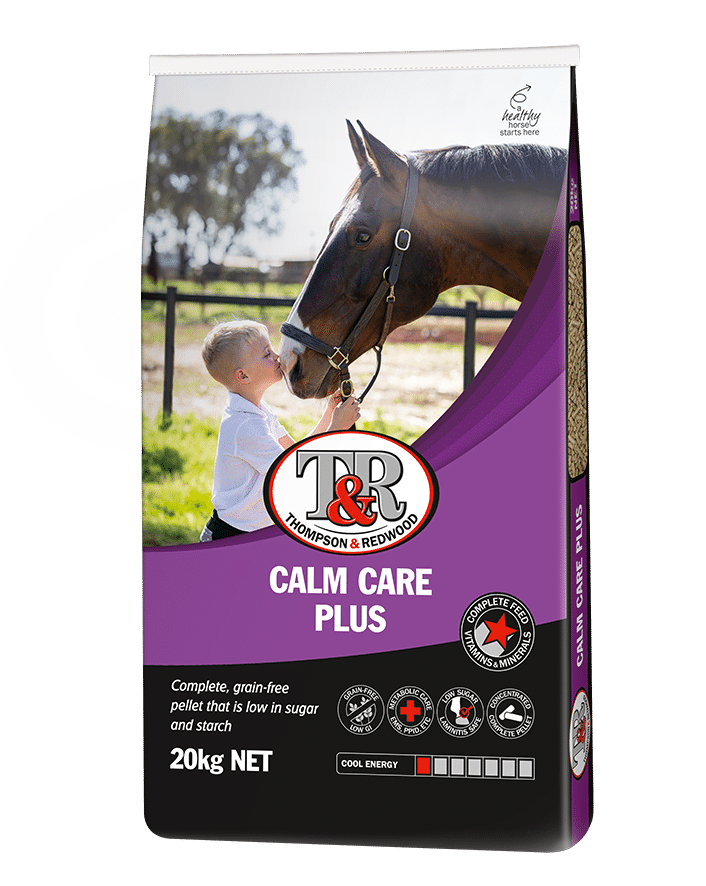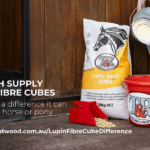
From grass roots to high performance, we have an equine feed to suit
A feed for (almost) every animal on the farm
Quality
Ruminant feeds to support productivity
We’re passionate about poultry
superior feed for broodmares, young stock & commercial studs
with added pre & probiotics
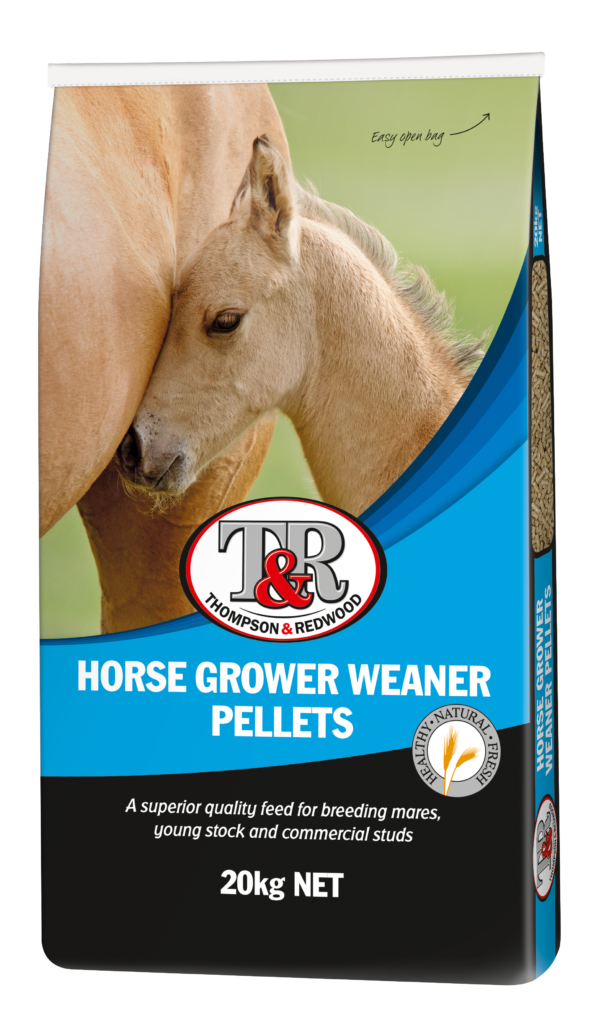

Making healthy, natural and fresh stock feed since 1985
Thompson & Redwood makes affordable and nutritionally balanced stock feed for the horse and agricultural
industries. Our recipes never change and are milled daily from Western Australian grain so you know what
you’re feeding is healthy, natural and fresh.
What's your
horse feeding challenge?
- Fizzy horse?
- Poor keeper?
- At risk of laminitis?
![]() Let our veterinary and nutrition team support you and your horse with our carefully formulated complete horse feeds.
Let our veterinary and nutrition team support you and your horse with our carefully formulated complete horse feeds.
Find the feed most suited to your horse or pony.
What's your
horse feeding challenge?
- Fizzy horse?
- Poor keeper?
- At risk of laminitis?
![]() Let our veterinary team support you and your horse with our carefully formulated complete horse feeds.
Let our veterinary team support you and your horse with our carefully formulated complete horse feeds.
Find the feed most suited to your horse or pony.
Another beautiful filly bred by the team at Leeara Park, `LP Aurora` who is gearing up for her first Royal Show outing. This stunning filly has been bred, grown and produced on Horse Grower Weaner Pellets.
.
.
.
.
#teamtandr #horsegrowerweanerpellets #foals #fuelledbytandr Caris Britt Reside
Aug 13

LET DOWN - what is the golden feeding rule for horse`s newly off the track?
🟡To gradually adapt our horse`s digestive system and microbiome to efficiently digest a diet higher in fibre and forage without losing condition 🟡
Letting Down or Let Down refers to the period directly after your horse has finished racing and training. A good let down can help your horse transition onto new feeds and into their new life with minimal upset and weight loss.
❓Why do they need to let down?
Racehorses are elite athletes, so while they are racing, their diet is carefully calculated and formulated to support the requirements of high intensity performance. This usually involves high amounts of fast-release energy sources like grains to make sure they have the energy they need.
The horses digestive system is a finely balanced machine. As hindgut fermenters, their digestive function and efficiency is determined by their microbiome and the types and variety of bacteria present in the hindgut.
There are different types of bacteria that break down different components of the diet, and what the horse eats will ‘feed’ each specific type. The bacteria that are ‘fed’ more will then be the ones to grow in population and dominate the other types of bacteria. So, if the diet is high in starch and low in fibre, the fibre-loving bacteria won’t have the fuel they need to thrive.
The gut microbiome is also very sensitive to change, and sudden changes can cause major digestive upsets. Like gardening, the bacterial population needs time to adjust and grow.
➡️ Let Down Feeding:
A good letdown diet will involve reducing the energy and starch in their feed slowly while introducing more fibre. This gives the gut microbiome time to adjust, and grow the population of fibre loving bacteria they need to ferment and digest the fibre in their diet.
Continued in comments ⬇️⬇️⬇️
Aug 12

THIS OR THAT?
Lupin Fibre Cubes are made with lupin hulls for just highly digestible super fibre without any additives.
Lupin Fibre Boost is our same lupin hull recipe, with a complete vitamin and mineral mix and pre and probiotics added, making it a complete feed.
Both are ultra-low in sugar and starch (laminitis safe feeds) and versatile to suit the needs of all horses and ponies.
#superfibre #lupinhulls #laminitis #horsefeed #besthorsefeed #fibremash #lowsugarandstarch
Aug 6

Did you know that wet winters = a higher laminitis risk coming into spring?
All the rain we`ve been getting leads to lush, sweet, fast-growing pastures and a spike in the starch, sugar, and fructan levels. If your horse or pony is prone to laminitis, that’s a dangerous combination!
While the cool weather is keeping growth at bay for now, as soon as temperatures warm up and daylight hours increase, the grass is going to take off and horse owners need to be ready. Being proactive is important, so for at-risk horses and ponies, you might need to start management earlier than spring by:
💡 Managing grazing through timed grazing, strip or track systems, or grazing muzzles
💡 Keeping their weight in check now, and reducing Body Condition Score if overweight
💡 Getting into the habit of doing regular hoof checks for any heat or changes in the digital pulse
💡 Checking that you have access to low NSC hay and chaff
💡 Being careful with calories in hard feed — if you`re not already feeding a low sugar and starch feed, look into laminitis-safe options like Calm Care Plus or Lupin Fibre Boost
💡 Including a low NSC fibre source like Lupin Fibre Cubes to maintain fibre diversity and consistency while grazing is being restricted
If you need help managing your laminitis- or EMS-prone horse or pony, reach out to our team for more information or a tailored diet plan 💬
#TipTuesday #HorseFeed #Laminitis #HorseNutrition #HorseHealth
Aug 5

Thanks Ashley for sharing photos of `Nikki` and `Double Demerits`! Two very different horses thriving on Horse Cubes for Seniors. Nikki is an older Clydesdale mare, and Double Demerits is an Off the Track Thoroughbred, and both benefit from the high fibre, high protein, conditioning formula (plus the pre and probiotics to keep their guts healthy!)
#horsecubesforseniors #horsemash #seniormash #seniorhorsecubes #seniorhorsefeed #conditioningfeed #buildtopline #horsefeed
Jul 31

Broodmares- why does their feed need to change in late gestation?
Because most of the foal`s growth occurs from 7 months onwards. In late gestation, the foal will go from the size of a rabbit to a fully formed foal!
Pregnancy in horses can be split up into two main phases:
Phase 1 - from Conception to 7 months, (early gestation)
Phase 2 - from 7 months to foaling (late gestation)
🔹 Phase 1: at conception, it is important for your broodmare to have a Body Condition score (BCS) between 5 and 7 on the Henneke Scale. If a mare is underweight or overweight, her fertility and ability to hold a pregnancy is decreased.
Once she is in foal, the aim of feeding in Phase 1 is to maintain a good body condition score, as the foetus` nutrient requirements are small compared with the mare’s own maintenance requirements.
🔹 Phase 2: At the 7th month of pregnancy, a foetus weighs approximately 20% of its birth weight, which is less than 2% of the mare’s body weight. But from here on, it`s GROW GROW GROW! It`s from the 7 month mark that the majority of a foal`s growth, skeletal and tissue development happens.
The nutrient requirements of the foal, and consequently the mare, increase dramatically during this phase. During this phase, she also sets up her body for lactation, where her requirements will increase again.
WHAT IS THE GOLDEN RULE OF FEEDING A BROODMARE?
🪙Do not overfeed during early gestation, and do not underfeed during late gestation and lactation! 🪙
Broodmares need high levels of protein, amino acids, vitamins and minerals to support the foal, without overfeeding on calories.
💡Feeding a full, balanced breeding specific feed like our Horse Grower Weaner Pellets helps to take the guesswork out of your mare`s ration.
💡Got a mare that needs a low sugar and starch feed? Calm Care Plus is safe for gestational laminitis and supports her nutrient requirements in late gestation and lactation.
Jul 29

For nearly 20 years, Kentaur Performance Horses have chosen T&R to feed their horses, from mares and foals through to their showjumping performance team.
"We have been feeding T&R feeds at Kentaur Performance Horses for nearly 20 years. They have always been a brand we can trust to give our horses the nutrition they need to grow sound, strong and reach their genetic potential." - Lucy Galovicova.
For more information on our breeding and performance feeds, contact our team at: sales@thompsonandredwood.com.au
Lucy Galovicova Kentaur Australia #warmbloodstud #horsestud #showjumping
Jul 28

COMPARE THE PAIR - could your chaff be a sneaky starch source?
Cereal chaff can be very high in starches and sugars, so if you`re feeding it, make sure you`re accounting for the NSC levels when balancing your horse`s diet.
Here are a few things to remember:
💡Cereal chaff is not suitable for horses that are prone to laminitis, metabolic conditions and ulcers. The NSC levels of oaten chaff in WA are around 31.5% but can be even higher depending on the region.
💡Sugars and starch do provide valuable energy for performance horses that need high calories to support their workloads, but make sure it is balanced with their concentrates which will already be providing quality energy.
💡For horses with low workloads, a cereal chaff or hay can give them too much energy, and you may see fizzy or `hot` behaviour. If seeing this, make sure you reduce the chaff or seek a cool alternative before changing your concentrates.
CHAFF ALTERNATIVES
✅️ A high fibre mash like Lupin Fibre Cubes is much lower in starch and sugars and actually higher in quality fibres.
✅ ️It provides high levels of pectins which promote gut health and feed good bacteria.
✅️ It is a more-cost effective fibre source, with a small amount going a long way. It expands to over twice it`s size when soaked, providing healthy fibre fill.
✅️ It is more stable and consistent than chaff, which can fluctuate in quality seasonally and depending on the source.
#lupinfibrecubes #fibreforhorses #fibremash #horsemash #besthorsefeed
Jul 24

Another beautiful filly bred by the team at Leeara Park, 'LP Aurora' who is gearing up for her first Royal Show outing. This stunning filly has been bred, grown and produced on Horse Grower Weaner Pellets.
.
.
.
.
#teamtandr #horsegrowerweanerpellets #foals #fuelledbytandr Caris Britt Reside
... See MoreSee Less

- likes love 3
- Shares: 0
- Comments: 0
0 CommentsComment on Facebook
LET DOWN - what is the golden feeding rule for horse's newly off the track?
🟡To gradually adapt our horse's digestive system and microbiome to efficiently digest a diet higher in fibre and forage without losing condition 🟡
Letting Down or Let Down refers to the period directly after your horse has finished racing and training. A good let down can help your horse transition onto new feeds and into their new life with minimal upset and weight loss.
❓Why do they need to let down?
Racehorses are elite athletes, so while they are racing, their diet is carefully calculated and formulated to support the requirements of high intensity performance. This usually involves high amounts of fast-release energy sources like grains to make sure they have the energy they need.
The horse's digestive system is a finely balanced machine. As hindgut fermenters, their digestive function and efficiency is determined by their microbiome and the types and variety of bacteria present in the hindgut.
There are different types of bacteria that break down different components of the diet, and what the horse eats will ‘feed’ each specific type. The bacteria that are ‘fed’ more will then be the ones to grow in population and dominate the other types of bacteria. So, if the diet is high in starch and low in fibre, the fibre-loving bacteria won’t have the fuel they need to thrive.
The gut microbiome is also very sensitive to change, and sudden changes can cause major digestive upsets. Like gardening, the bacterial population needs time to adjust and grow.
➡️Let down feeding:
A good let down diet will involve reducing the energy and starch in their feed slowly while introducing more fibre. This gives the gut microbiome time to adjust, and grow the population of fibre-loving bacteria needed to ferment and digest the fibre in their diet.
❌ DON’T: switch them straight to a low-energy, high fibre diet like 100% pasture or hay
❌ DON’T: make any sudden changes, remove or introduce any new feeds slowly
✅ DO: Continue feeding some of their grain or racing feed while introducing a new feed
✅ DO: Start introducing a high fibre bridging feed like Lupin Fibre Cubes or Lupin Fibre Boost straight away
✅ DO: Look at introducing a feed like Claytons Pellets, which is whole-grain free but still contains a controlled amount of starch.
✅ DO: make small alterations over time as their condition and workload change
... See MoreSee Less

0 CommentsComment on Facebook
Basking in the sun here and cheering on the juniors at the Roebourne Rodeo! We're proud to support this inaugural event, run by Karlayura Rodeo Inc. an indigenous-led, not-for-profit association.
A huge congratulations to the event's co-founder and our sponsored rider Tui Magner - Coaching & Horsemanship, we love seeing what you do for your community and your sport.
... See MoreSee Less


0 CommentsComment on Facebook
Where are we off to this weekend? Only the Roebourne Rodeo!
Super proud of all the hard work Sponsored Rider Tui Magner - Coaching & Horsemanship and the team have put into make this event a reality.
www.instagram.com/reel/DKvcTjVz5lg/?igsh=M3doc3B4Ynhjdjh3
... See MoreSee Less
This content isn't available right now
When this happens, it's usually because the owner only shared it with a small group of people, changed who can see it or it's been deleted.3 CommentsComment on Facebook
THIS OR THAT?
Lupin Fibre Cubes are made with lupin hulls for just highly digestible super fibre without any additives.
Lupin Fibre Boost is our same lupin hull recipe, with a complete vitamin and mineral mix and pre and probiotics added, making it a complete feed.
Both are ultra-low in sugar and starch (laminitis safe feeds) and versatile to suit the needs of all horses and ponies.
#superfibre #lupinhulls #laminitis #horsefeed #besthorsefeed #fibremash #lowsugarandstarch
... See MoreSee Less


 +1
+1
7 CommentsComment on Facebook
